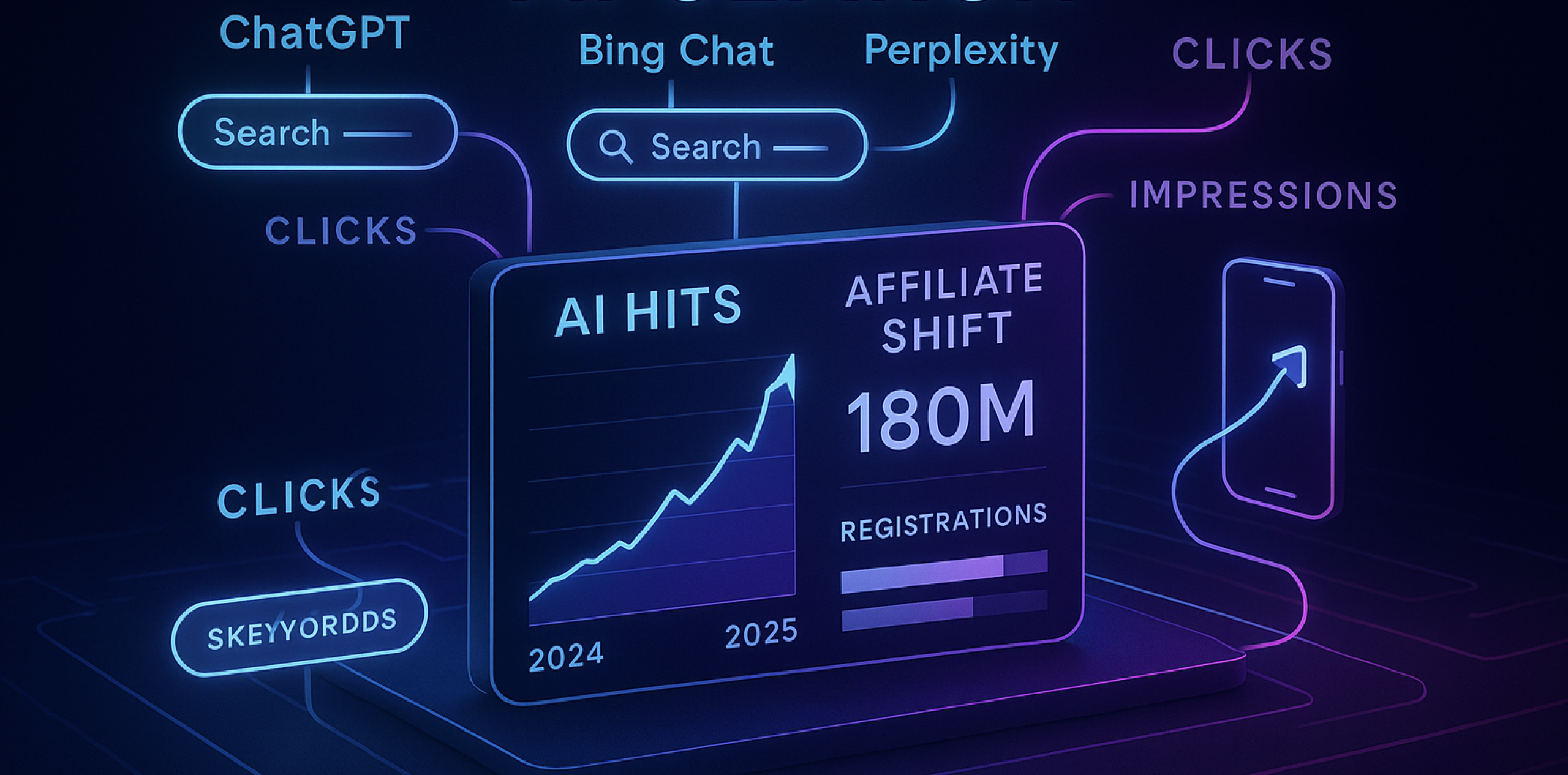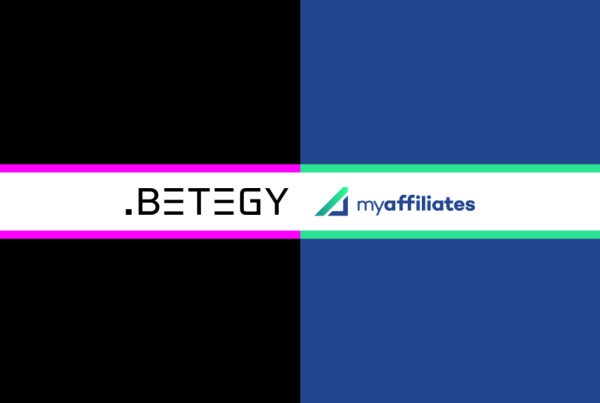Over the past 18 months, AI-driven search tools such as Bing Chat, ChatGPT, and Perplexity have begun to influence how users discover content and brands. To understand whether this shift is impacting affiliate marketing, a comparative analysis was conducted on traffic, impressions, clicks, and registrations across January to July 2024 and the same period in 2025, along with an isolated look at traffic coming specifically from AI-driven sources.
The data shows a clear upward trajectory in AI-generated activity. In January 2025, AI-driven hits were just over 1,000. By May, that number had climbed beyond 10,500 before settling at around 9,000 by July. Visitor numbers grew at a slower pace, stabilising at approximately 7,000 per month. This indicates that while AI interfaces are increasingly acting as a discovery layer, not all hits translate into unique traffic. Still, the growth highlights that AI referrals are no longer marginal — they represent a measurable and growing part of the traffic mix.
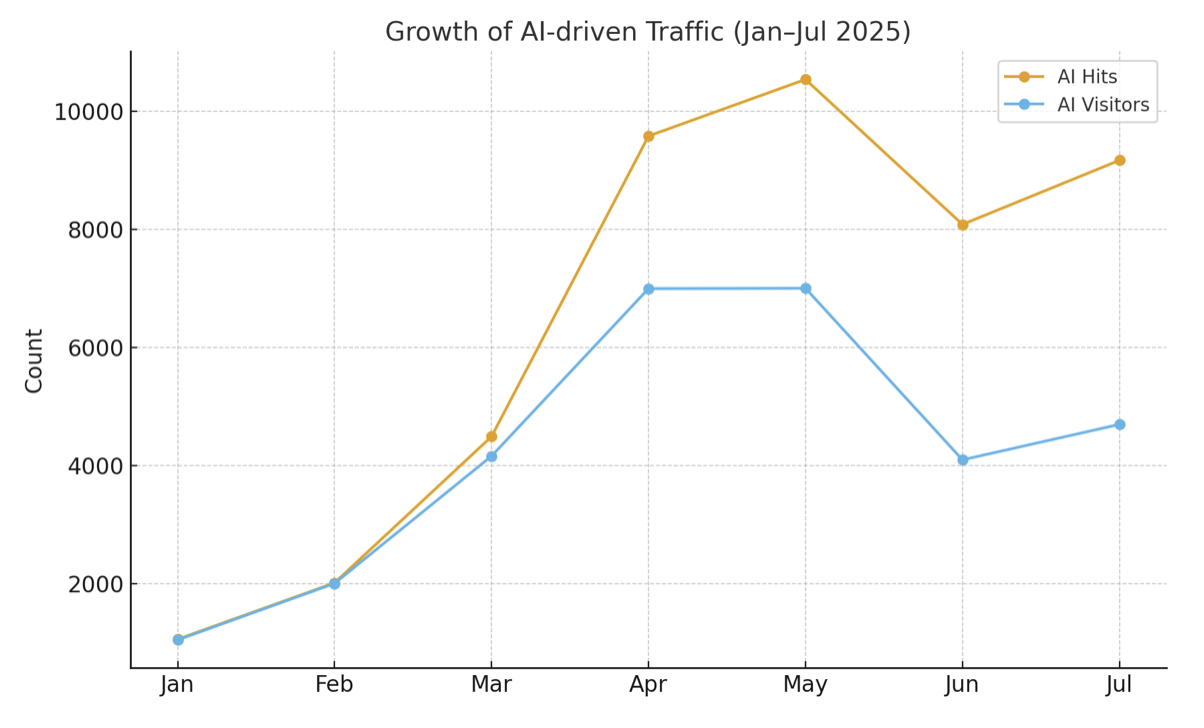
When looking at overall system performance, impressions in 2025 significantly outpaced those of 2024. Several months pushed close to 200 million impressions, compared to averages of 150–170 million the previous year. Click volumes remained remarkably strong in both years, consistently hovering around the billion mark per month. Registrations also held steady, between 2.8 and 3.3 million monthly, underscoring that user conversion remained resilient despite shifts in browsing behaviour.
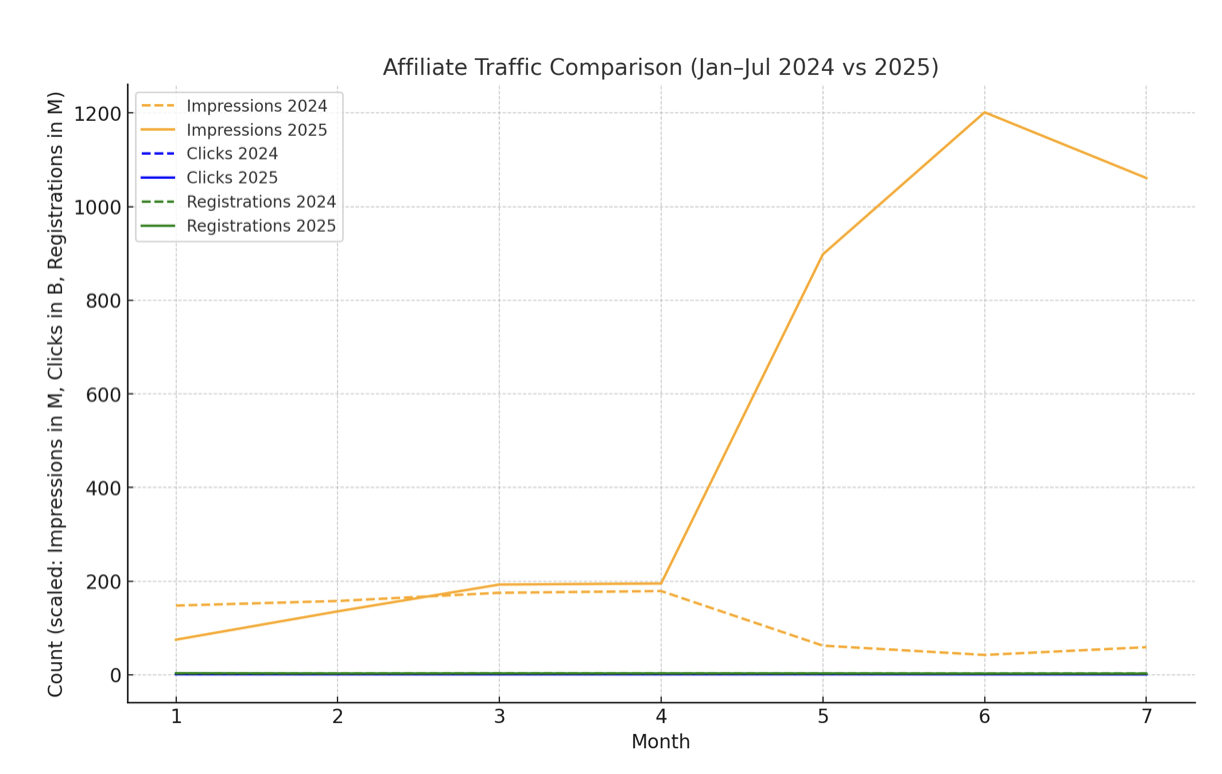
A closer examination by geography adds another dimension. Established markets showed signs of levelling out in 2025, while emerging markets recorded notable growth. Much of this growth is occurring in mobile-first regions, aligning with the broader trend of AI-enabled search being most widely adopted on smartphones. This mobile-driven adoption provides an additional signal that affiliates and operators need to optimise strategies with device behaviour in mind.
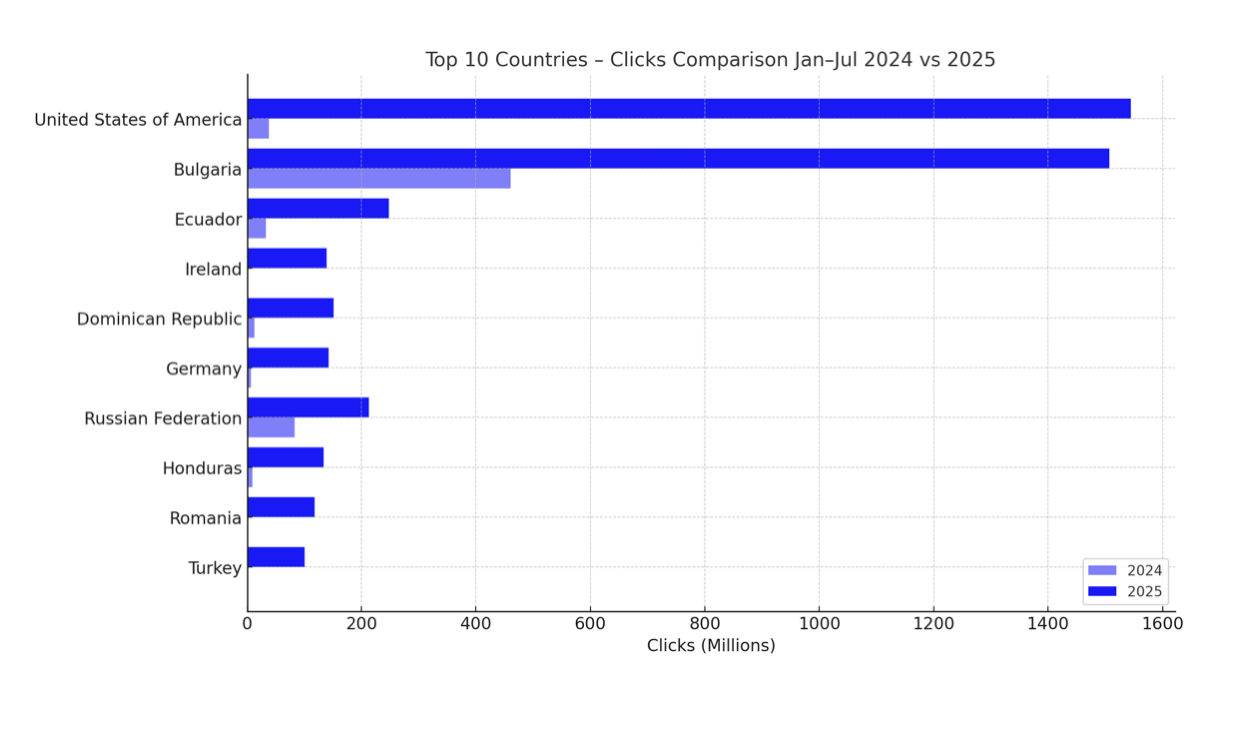
Several important themes emerge from this analysis. AI-driven search is no longer experimental traffic — it has scaled rapidly and is already delivering meaningful volumes. However, sheer numbers are only part of the story. The slower growth in unique visitors compared to raw AI hits suggests that measuring quality is as important as measuring quantity. Affiliates that continue to rely solely on last-click attribution risk overlooking the role that AI-driven interfaces play earlier in the discovery process.
The overall takeaway is that AI is reshaping the affiliate landscape faster than many anticipated. Affiliates and operators who adapt their attribution models, strengthen analytics, and refine content strategies for an AI-first environment will be better positioned to benefit. Conversion remains stable today, but the mix of where and how traffic is sourced is clearly shifting.
At MyAffiliates, monitoring these changes is central to ensuring that partners have visibility not just on traffic volumes but on how that traffic behaves and converts in an evolving digital environment. The role of AI in affiliate marketing is no longer a question of “if,” but of “how fast” and “how deep” the impact will be felt.

